Laser dentistry simply refers to the use of LASER in dental treatments. It’s widely used for tooth decay, gum diseases, and to expedite teeth whitening procedures. During this procedure, a very thin but powerful beam of light is used for treatment. Laser dentistry often results in minimal or no pain for patients and is considered very safe and effective.
At Clinic Eximus, we employ state-of-the-art dental technologies for patient treatments. If you’re considering dental laser treatment, our team of expert professionals will ensure you receive the right care.
The full form of LASER is ‘Light Amplification by the Stimulated Emission of Radiation’. When laser energy is absorbed, it elevates tissue temperature, producing photochemical effects. The procedure involves several steps and is effective for various dental problems. LASER is widely used in dentistry due to its efficiency, ease of use, cost-effectiveness, and patient comfort. It has applications in both soft tissue and hard tissue procedures, proving beneficial for various surgical and dental treatments. The laser has become an integral part of our dental practice strategy.
Today, lasers are used in dentistry for various purposes. Their usage is not limited to specific applications but is broad and diverse.

It is also advantageous in conducting successful gum surgeries, reshaping gums, and crown lengthening.
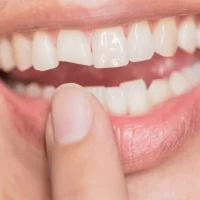
In addition to the above-mentioned uses, lasers are quite effective in removing small pieces of tissue. They are also effective for removing lesions in the mouth.
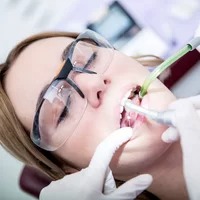
Chronically infected teeth harbor various microbes that are resistant to antibiotics. In such cases, lasers are the best way to disinfect the root canal, significantly increasing the success rate of the root canal treatment.
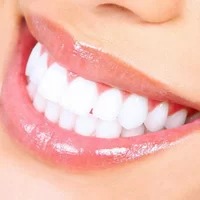
In addition, lasers are quite effective in speeding up teeth whitening procedures. A laser beam is applied to the peroxide bleaching solution, accelerating the whitening process.
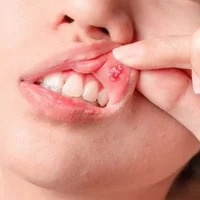
Laser is considered one of the best solutions for mouth infections and provides relief from mouth sores.
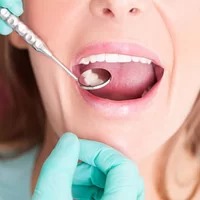
Laser treatment is the best solution for removing tooth decay.
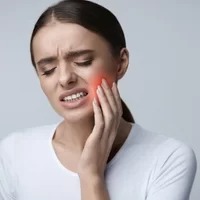
LLLT (Low Level LASER Therapy) is a deep relaxation therapy that calms muscles and relieves chronic pain. Muscle injuries often occur after TMJ injury, bite issues, and wisdom tooth removal.
Dental laser technology is among the best methods for treating various dental health issues as it minimizes pain. Globally, dentists have expressed confidence in laser dentistry due to its wide range of benefits. Let’s explore the advantages of laser dentistry if you’re considering this option.
Laser dentistry is gaining popularity among dentists as an alternative approach. Dentists undergo training to utilize laser tools in place of traditional methods such as shots and drills. Laser dentistry gets its name from its use of lasers to detect cavities, treat gum problems, and remove tooth decay. These procedures and more can be performed using lasers, eliminating the need for cutting, anesthesia shots, and drills. Additionally, laser dentistry is virtually painless for most patients, including infants, making it a preferred choice for those seeking quicker recovery and a more comfortable dental experience.
Laser dentistry is suitable for people of all ages. While adults may be accustomed to traditional dentistry involving shots and drills, some prefer the benefits of laser dentistry. However, lasers are especially beneficial for infants and children who may not tolerate shots, drills, or stitches well during dental procedures. Our practice focuses on providing positive experiences for children and infants because starting dental care early can encourage lifelong dental health.
Dental phobia occurs when patients fear visiting the dentist to the extent that they may experience panic attacks and intense anxiety in a dental office. These feelings often stem from concerns about pain from shots and drills. According to Colgate, citing Peter Milgrom, DDS—a dental author and professor at the University of Washington—up to 8% of people ‘refuse’ to go to the dentist due to dental phobias. However, laser dentistry alleviates the fear of shots and drills because these tools are not used during laser procedures.
Patients benefit from:
Laser lights are used to gently pass light through a tooth to detect hidden cavities. When there is no cavity, the light passes through the tooth material. If there is a cavity, the area appears dark, allowing the dentist to see the exact size and shape of the cavity. Using a laser, they can carefully remove part of the tooth, clean out the decay, and fill the tooth again. This approach is equally effective as other forms of dentistry but without the need for anesthetic shots and loud drills.
Sometimes, patients can develop abnormalities or growths on their gums. This is particularly common in pregnant women due to increased blood production, which can lead to the growth of small nodules on the gums that may cause discomfort. Conditions like gum disease can also result in gum abnormalities or growths. Lasers can effectively remove these abnormalities. The laser is passed over the growth, and as it removes tissue, the area seals itself immediately.
Since the 1990s, dental lasers have been and continue to be used for:



© 2023 All Rights Reserved - Website Managed by Clinic Eximus